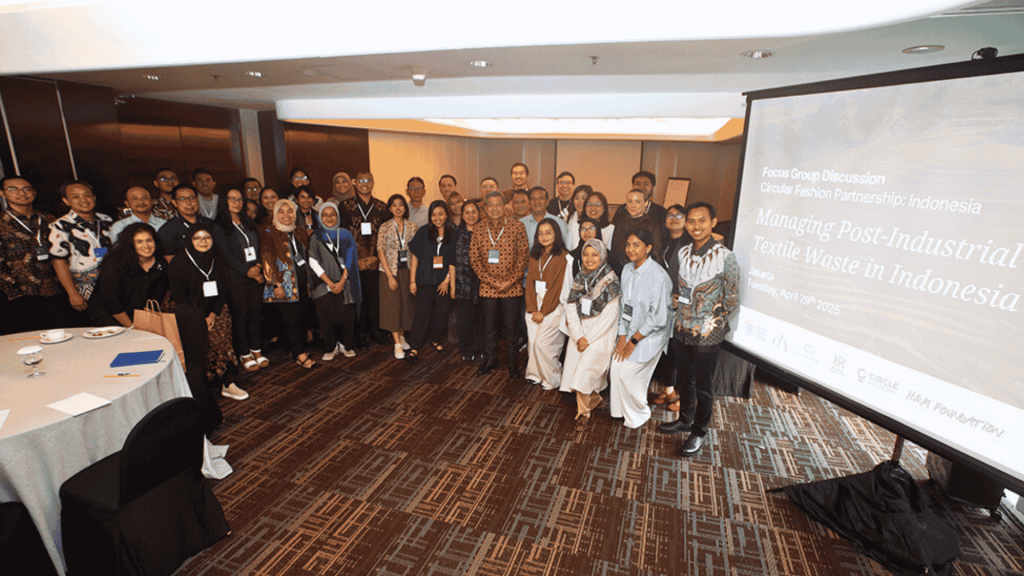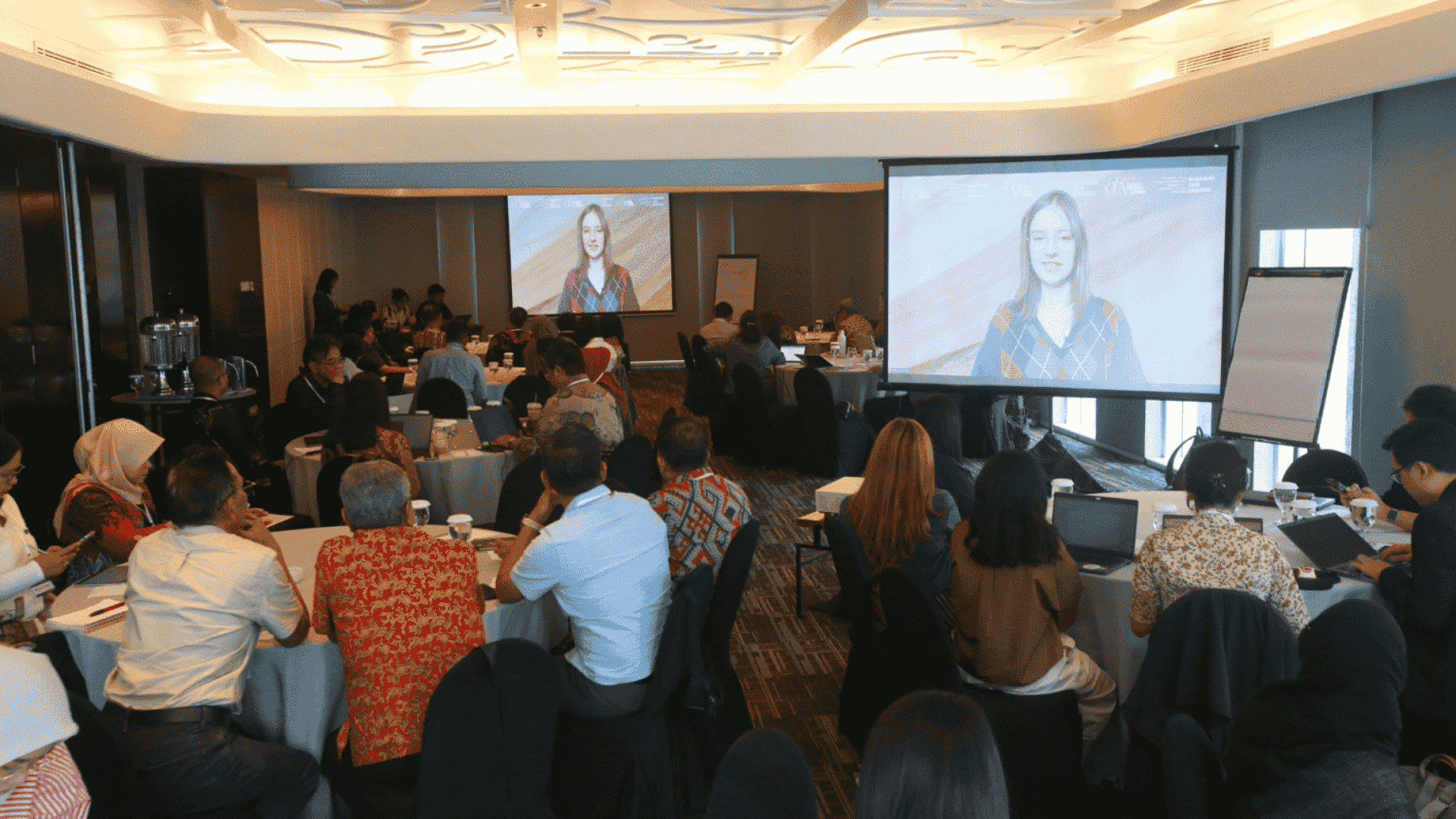On April 29, 2025, Rantai Tekstil Lestari (RTL) convened an impactful Focus Group Discussion (FGD) at JS Luwansa Hotel, Jakarta, titled “Managing Post-Industrial Textile Waste in Indonesia.” This discussion was more than just a meeting—it was a strategic follow-up to the launch of the Circular Fashion Partnership (CFP) Indonesia held in October 2024, and marked a crucial step forward in building a truly circular textile system across the country.
This event was also co-hosted with GGGI Indonesia.
A United Effort to Rethink Textile Waste
The FGD brought together key stakeholders from across the textile and fashion value chain—including government officials, textile manufacturers, fashion brands, recyclers, researchers, and sustainability practitioners. By doing so, RTL fostered a platform for cross-sector dialogue, allowing stakeholders to collaboratively identify barriers and design practical, scalable solutions to manage and reduce post-industrial textile waste.
The CFP Indonesia program, a two-year initiative led by Global Fashion Agenda (GFA) and supported by the H&M Foundation, positions RTL as the national lead, alongside global partners including Closed Loop Fashion, Reverse Resources, and Circle Economy. Together, these organizations aim to establish systems that prioritize waste traceability, material recovery, and industry accountability.

“Indonesia needs to be part of the front players in the global circular textile value chain, as we have big potential for it.”
Basrie Kamba, Chair of RTL
Satrio Pratama, Secretary General of RTL, reintroduced the CFP Indonesia program, emphasizing its mission to systemically reduce textile waste while creating social and economic value for local stakeholders.
A pre-recorded video message from Francesca Girelli, Impact Programme Operations Coordinator at GFA, highlighted the international momentum behind circular transformation and encouraged strong national alignment.
Highlights from the FGD
Government representative Apit Pria Nugraha, Head of Center for Green Industry at the Ministry of Industry, reinforced the alignment of CFP’s objectives with national strategies:
“One of the main mandates for the Green Industry Center from the Minister of Industry is to decrease emissions from industrial sectors. Circular economy is one way we can realize this. We are currently formulating related regulations with considerations on how it doesn’t burden the industry.”
Apit Pria Nugraha, Head of Center for Green Industry
Key Discussion Topics
Throughout the FGD, participants addressed pressing issues including:
The profiling and classification of post-industrial textile waste in Indonesia
Gaps in the current regulatory landscape for textile waste and recycling
The urgent need for certification standards, financing mechanisms, and infrastructure investment
Collaborative models for waste sorting, collection, and closed-loop recycling
These discussions aimed to inform policy recommendations, support pilot projects, and build the case for long-term systemic change in waste management and resource utilization.
Towards a Shared Vision
This FGD marks a critical milestone in mapping Indonesia’s readiness to transition from a linear to a circular textile economy. With a growing global demand for sustainable manufacturing, Indonesia must evolve not just as a production hub, but as a leader in circular innovation.
The outcomes of this discussion will directly inform the implementation roadmap for CFP Indonesia, helping ensure that businesses, government, and civil society are not just aligned—but empowered to act.


